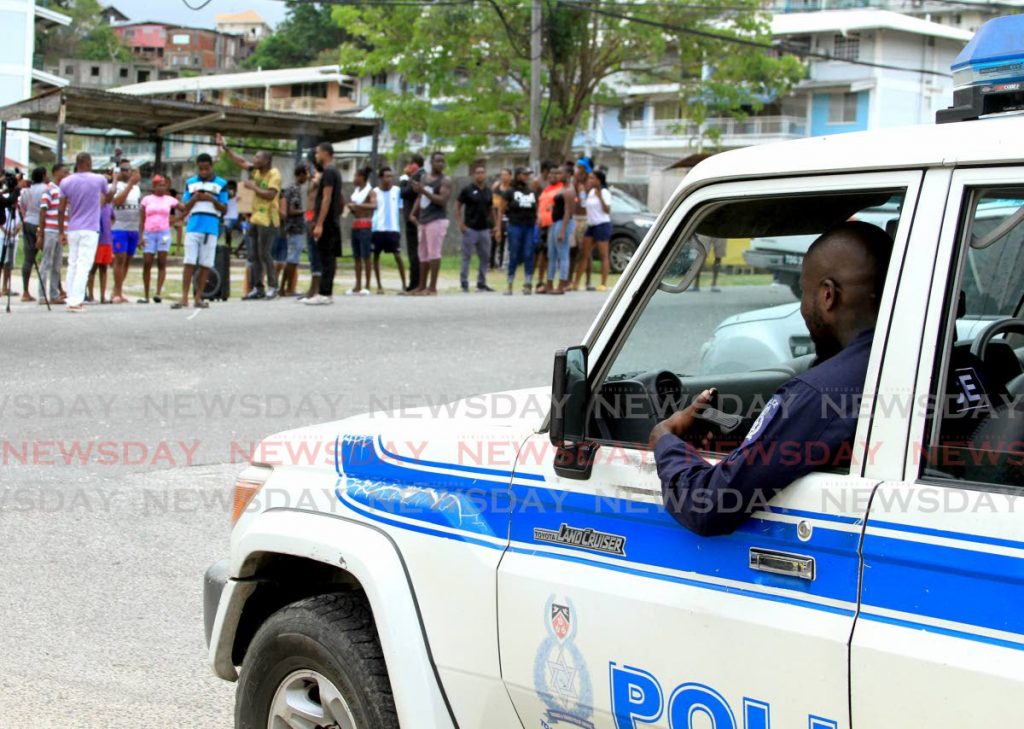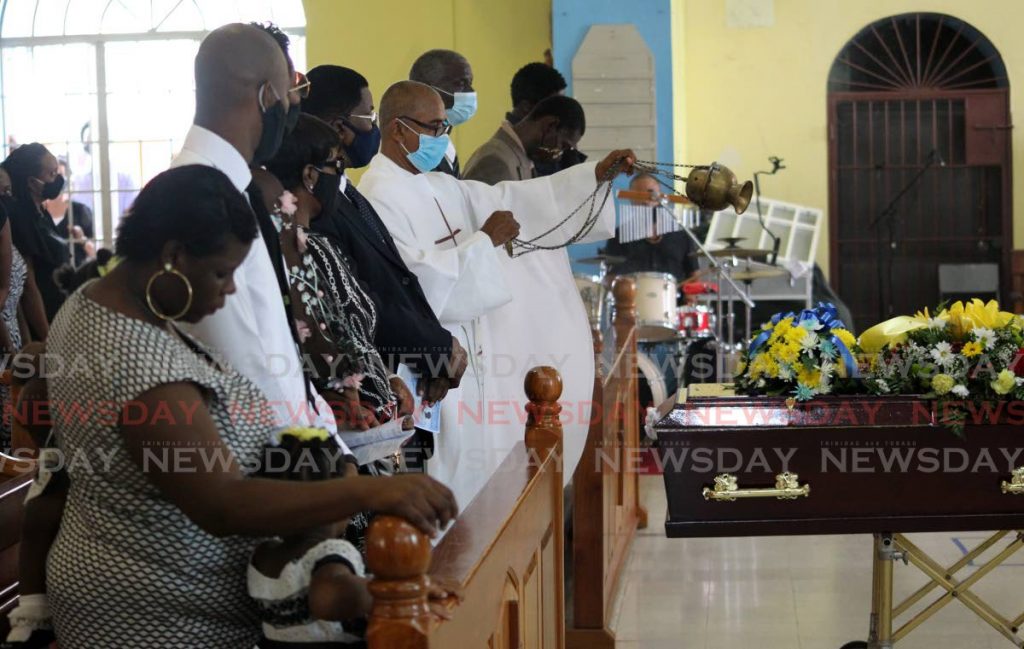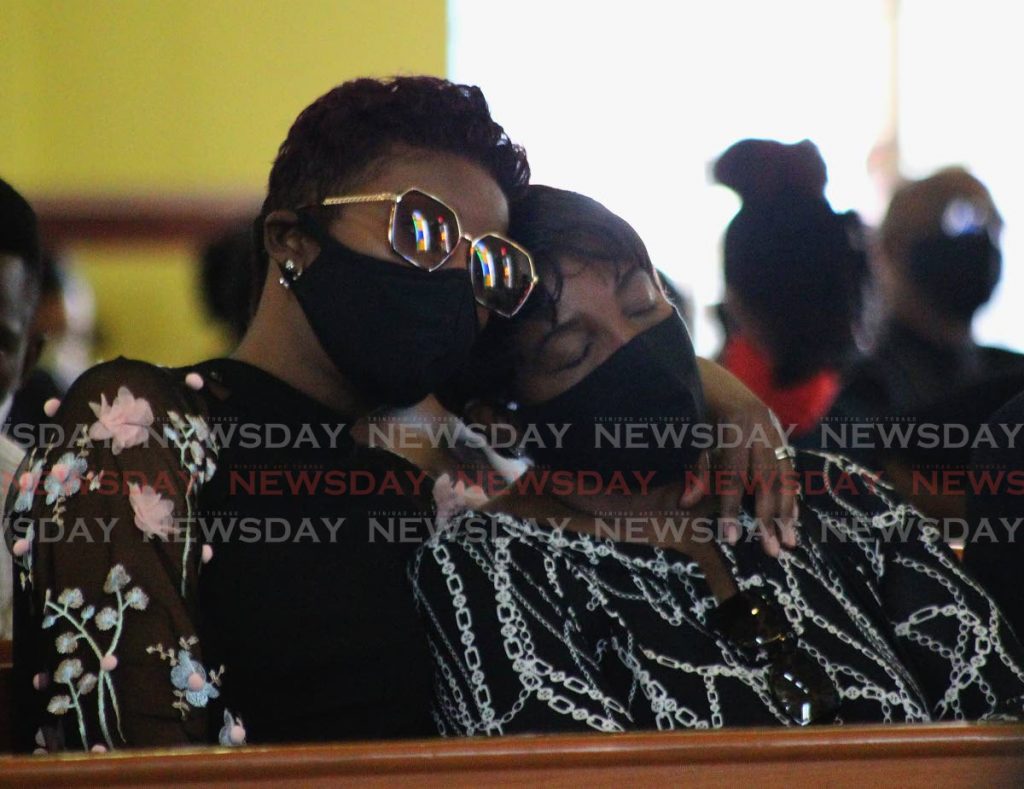PCA reviews evidence in Morvant police killings

Despite its limitations, investigators assigned to the Police Complaints Authority have made significant strides in their investigation into the killing of three men by police in Second Caledonia, Morvant, one week ago.
The killing which was captured on a home security camera and shared on social media hours after the incident led to widespread protests over three days last week after violent confrontations between protesters and police in the city of Port of Spain and several other areas across the country.
Investigators have already secured the video footage and obtained evidence from key witnesses and intend to get statements from the dozen officers who were involved as well as forensic reports on the autopsies of the three victims, ballistic reports and other scientific evidence.
The relatives of the dead men have all retained attorneys who are liaising with PCA investigators.
In one case, a private autopsy was done by pathologist Dr Hubert Daisley which reportedly concluded that the victim was shot as he surrendered.
The fatal police shooting was one of the first instances where such an incident was captured on video and it reignited claims of alleged police killings over the years which have gone unsolved. The shooting incident took place less than 12 hours after an officer, PC Allen Moseley, was murdered in the same district.
Officers assigned to the Professional Standards Bureau are also separately investigating the Morvant incident. Residents claimed there was a second video from another angle which had already been obtained by police.
On June 27, around 2.15 pm, Joel Jacobs, Noel Diamond and Israel Clinton were travelling in a gold Nissan Tiida along Juman Drive when three police jeeps drove past them.
The video showed the jeeps stopping in the road and about 12 armed officers ran to the Tiida which had pulled to the left side of the road.
Jacobs emerged from the back seat with his hands in the air and Clinton, the driver, also had his hands in the air. As the right rear window was lowered, police shot at Clinton, the back seat passenger, later identified as Diamond, and Jacobs, who was outside the car.
Police claimed Jacobs pulled a gun on them, prompting them to return fire. One officer was observed picking up items from the ground and another drove the Tiida, which had rolled forward, back a few feet.
Relatives disputed the police account and said Jacobs was celebrating his 38th birthday that day and was on his way with Diamond, who suffered from a disability, to buy alcohol at a nearby shop. Clinton, police confirmed, had been charged for possession of ammunition and a money counter and was linked to several other offences.
The protest action prompted the Prime Minister to intervene, five days later, to call for calm, even though the National Security Minister and the Police Commissioner claimed the protesters were being paid by criminal gangs in a plot to destabilise the country and launch gun attacks on officers and police stations. Griffith likened the plot to the 1990 attempted coup and praised officers for the decisive action to end it.
Dr Rowley announced the formation of yet another committee in an attempt to find solutions for disenfranchised communities throughout the country including areas such as Laventille, Beetham and Sea Lots.

The PCA, which is the sole body with the authority to investigate the matter independently, was criticised by the Prime Minister then as not functioning in the way it should "and that loss or absence of confidence is there."
But the PCA, in response, said it needed additional powers to take control of such investigations without depending on the police service for help.
PCA stymied from the start
The PCA, which has been flung under the public's microscope, as it tries to unravel the truth surrounding the deadly Morvant shooting, pleaded for patience as it goes about its task
"Understandably, there is a measure of public frustration with the speed at which the Police Complaints Authority has been able to investigate alleged shootings and other offences involving police officers in their contact with members of the public," the organisation, headed by director David West, said in response to questions from Sunday Newsday.
It said even though there were "serious limitations, delays and blockages" in its path the investigators will press ahead to probe the matter.
The PCA said its investigators are "stymied from starting their investigations at the crime scene" and are often not informed about fatal shootings when they occur, usually learning of them from media reports, and its investigators "struggle to catch-up with materials" and have to await responses from police investigators.
"Effectively this means that the PCA investigators have to rely completely on the police officers for crime-scene information to conduct their investigations," the PCA said.
It added that requests for materials, data and other necessary information from the police are often met with long delays and on occasion absolute refusal and discourtesy.
"In this regard, and to a large extent, the PCA’s role is relegated to asking for documentation, inclusive of post-mortem, exhibits, certificates of analysis and the first-hand reports of officers involved in the shooting and reports from station diaries. Moreover, the PCA investigators find themselves working on information and complaints not having information as to how such materials were collected and analysed in the first instance," the statement said.
It added: "At the core of the problems is the inadequacy of the legislation which governs the functioning of the PCA and its investigators. The shortcomings are due to the lack of certain powers, privileges, immunities and authorities under various pieces of legislation, including the Firearms Act. In particular the absence of powers by the PCA investigators prevents them from taking hold of 'prohibited weapons' such as firearms and ammunition.
"The PCA investigators are effectively limited to marking time behind the police and completely dependent on them for information and hard evidence from crime scenes to conduct their investigations."

"This situation severely compromises the quality of the PCA’s investigation as it is left to rely on evidence/information which it has absolutely no idea of how it was collected, sourced, packaged, handled and sorted. These matters are critical to a thorough, effective and timely investigation into an alleged police killing," the organisation said.
In monitoring and auditing police investigations into shootings involving officers, the PCA has observed:
Officers involved in shooting handle key pieces of evidence
There are delays on the part of the police in submitting evidence for relevant testing
The failure by the police to ensure all relevant testing of evidence is done
Gaps in chain of custody of evidence
Improper removal of items from the scene of the shooting
Failure to account for items of evidence
The delays in collecting exhibits / certificates of analysis
The PCA also complained about a lack of transparency in relation to the movement of police files into fatal killings when it tries to fulfil its role of monitoring the progress of an investigation.
"Frequently, there are no or no reliable records of the TTPS to which the PCA can turn to ascertain the location of the relevant file or the persons who had such a file in their custody at any given time."
It noted that the failure to reassign files to another investigator when the original investigator resigns or is not on duty for extended periods also delays the outcome of the probe.
Asked whether the PCA can take any further action after its recommendations are submitted to the Office of the DPP of the CoP, the organisation responded, "The offices to whom these recommendations are made are independent offices over which the PCA cannot exert any influence or authority. Moreover, the PCA does not have the power to make decisions on prosecution or discipline. However, the PCA may, inform a complainant of his or her right to lay a private complaint."
On whether PCA investigators should be given the authority to charge accused officers to prevent the duplication of investigations, the PCA noted that it was the "sole authority" to investigate allegations against the officers and "duplication of investigations was never envisioned as the Parliament intended that the PCA, and not the police, would be investigating police officers who allegedly committed criminal offences or police corruption of serious police misconduct.
"As far as the authority to charge is concerned, it must be stated that the Constitution ...vests within the DPP the power institute criminal proceedings and that power is to be respected," it stated.
Asked whether officers accused of serious criminal conduct should be allowed to remain on active duty, in the same units they were assigned before the allegations, the PCA said they should not.
"There should be absolute impartiality and the appearance of it in the investigation of all allegations relating to police officers. If officers remain in the units in which they may have committed criminal offences, they will be perfectly poised to access confidential information relating to their own investigations. Additionally, the persons commissioned to investigate may be colleagues present in the said units whose loyalties may be tied to the relations they have with their colleagues. Lastly, allowing officers to remain in the units runs the risk of concealment and destruction of evidence."
The PCA and the police service are still trying to hammer out a memorandum of understanding to help fast-track some of those matters in the absence of legislation.
Police Commissioner Gary Griffith has repeatedly said that he intends to co-operate fully with the PCA and will not cover-up wrongdoing by officers. Griffith is also on a campaign to fire officers accused of serious misconduct even before the determination of their charges as he says officers must have a higher standard.
The PCA has admitted the relationship with the police service has improved under Griffith's tenure and issues are being addressed in a timely manner.
156 cases of police killings under review
Statistics released by the PCA show that between 2014 and 2020, there were 214 incidents of fatal police shootings, and in several of the cases there were multiple victims.
Of that number, there are currently 156 active investigations; 20 have been referred for a coroner's inquest where the evidence gathered during the probe will be further examined by a magistrate; four have been referred to the Office of the Director of Public Prosecutions with recommendations to charge the officers for murder; and 32 cases were closed because of a lack of sufficient evidence to support allegations of misconduct, the existence of cogent evidence to disprove the allegations and a lack of co-operation from witnesses where their evidence is key to solve the suspected offence.
The matters which led to murder charges against police officers include the killing of Abigail Johnson, Allana Duncan and Kerron “Fingers” Eccles on July 22, 2011 in Moruga, after which six officers were charged, and the 2016 shooting death of Adelle Gilbert, at the Carlton Lane housing project, where two officers were charged for murder.
Another case involving four officers was also recently referred to the Office of the DPP with a recommendation to charge for murder, but the matter has been sent back to the police for further investigation. In that matter, Yasin Richardson was shot dead on June 23, 2018, along Tumpuna Road, Arima, in what police described as a shootout after the 22-year-old allegedly robbed a gas station. The PCA also secured video evidence in that case. Four officers had been arrested in May but were subsequently released on the instructions of the Office of the DPP.
Additionally, in eight of the cases over the same period the PCA has made recommendations to invoke disciplinary proceedings against officers.
For this year alone, there have been 44 cases of fatal police shootings, an 83 per cent increase for the comparative period last year, according to the PCA figures, which include the triple killing and the shooting death of Ornella Greaves, a bystander during the Beetham protest on June 30.
On September 1, 2013, Beetham residents staged a fiery protest and blocked the Priority Bus Route and Beetham Highway after Ornella's brother Christopher, 25, was shot dead by police. They claimed police could have saved his life if they allowed residents to take him for medical treatment.
Police said that file had been referred to the Office of the DPP, which in turn, passed it over to the police for further investigations in September 2015.
There have been several other instances of police shootings which led to demands for justice, including the May 2019 Carenage deaths of 14-year-old Naomi Nelson, Keron Eve and Kareem Roberts.


Comments
"PCA reviews evidence in Morvant police killings"